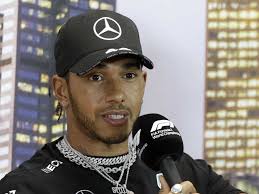There are mounting calls for the Federal Government to ban large public gatherings to contain the spread of coronavirus, with some doctors claiming the Coalition’s response to the outbreak is inadequate and exposing Australians to an increased risk of infection.
Prime Minister Scott Morrison has repeatedly said Australians should continue attending gatherings like sporting matches, but Federal Labor MP Mike Freelander, who has also worked as a doctor for 40 years, has criticised the Coalition’s response as “lacking a sense of urgency”.
“I don’t believe people should be attending large gatherings because of the risk of spread,” Dr Freelander said.
“If we don’t slow down the onset of the coronavirus I’m very concerned with the onset of winter and the influenza season, our systems are going to be completely overwhelmed.”
In recent days, doctors have been ramping up calls to ban large gatherings like sporting events, to help people avoid coming into contact with others who might be infected.
A group of medical professionals were outspoken in their opposition to this weekend’s Grand Prix in particular, after the Ferrari team arrived from Italy.
McLaren Racing confirmed late on Thursday night it had withdrawn from the event, after one of its team members tested positive for coronavirus.
Multiple sources have since reported the event has been called off, with a majority of the Formula One teams unhappy to continue and the governing FIA accepting the decision.
Victorian Australian Medical Association (AMA) President Julian Rait said other major sporting events needed to be cancelled.
“History indicates in the acceleration of an epidemic if large public gatherings are contained, it’s more likely you’ll be able to reduce the spread of infection and the consequent fatality rate,” Associate Professor Rait said.
“The unfortunate lessons of history are such while it’s all very well to believe things are contained in the context of viral outbreaks, often things behave very differently.”
West Australian President of the AMA, Andrew Miller, said the Federal Government needed to announce a point in which it would enact a ban on events.
“It’s beyond time for the government to tell us what the plan is, what date they’re going to do this, depending on how many cases they see,” Dr Miller said.
Dr Miller said if the government doesn’t make an announcement soon, sporting codes should take matters into their own hands.
“We certainly saw that with the much bigger National Basketball Association in the United States,” he said.
“The Government has a lot to focus on at the moment. Obviously there’s a lot of commercial pressure on them.
“We would like codes to do the right thing, and say, ‘These are our plans that are in place, we believe this is happening and we’re going to help the community’.”
The Federal Council of the Australian Medical Association (AMA) is meeting in Canberra this week, and a ban on public events will be among the topics discussed.
Health Minister Greg Hunt defended the decision not to ban public gatherings, telling the ABC the Government had been guided by the best medical experts in the world.
“These questions are being assessed on a daily basis as to what upgrades Australia needs,” he said.
“Australia’s chief medical officer and chief health officers around the states and territories meet daily, they review the requirements, we’ve been basing our actions off the advice of the best medical experts in the world and we’ll continue to follow their advice on what they believe is safe and appropriate for Australia.”
In a show of bipartisan support, Opposition Leader Anthony Albanese told the ABC he supported the Government’s position.
“We need to listen to the chief medical officer and we need to listen to the medical advice,” he said.
“If there is a decision made to avoid such activity, then it should be complied with. It’s as simple as that. One of the things that we need to not do is second guess — and for all of us to become amateur medical experts.”
Government ‘delusional’: Freelander
Mr Morrison and Mr Hunt unveiled the details of their $2.4 billion coronavirus health plan earlier this week, which included setting up 100 pop-up fever clinics and a Medicare rebate for GP consults over video conferencing sites.
Mr Hunt said those clinics could be staffed by medical staff who had been out of the workforce.
Associate Professor Rait suggested the strategy was “unlikely to be effective”.
“It is very uncertain whether doctors coming out of retirement is a safe strategy, because doctors particularly who are in their 60s and 70s are at a greater risk of succumbing to the infection,” he said.
Dr Freelander dismissed the idea as “delusional”.
“Older workers, older people of course are the ones who have shown to be the highest risk,” he said.
“So I really think it’s a bit delusional to be thinking these things are going to really work efficiently.”
Dr Freelander also criticised the time it would take for the clinics to be fully functional, with the Government saying it hopes to have all of them in place by the end of May.
“Saying in two to three months’ time is a bit like getting a water bomber up, in the middle of winter, when it’s pouring with rain,” he said.
Mr Hunt said there had been an “overwhelmingly positive reception” to the Commonwealth’s response.
“States have already established a number of clinics around the country, exactly as we intended, exactly as we agreed.”

